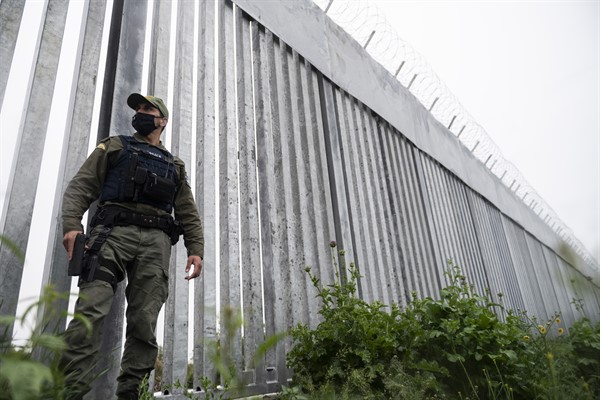Editor’s Note: Guest columnist Judah Grunstein is filling in this week for Howard French, who will return next week.
Has the center held in Europe? The obvious answer would seem to be yes. As has been widely noted, parties on the extremes lost ground in Germany’s election this weekend compared to 2017. And across Europe, far-right and anti-establishment parties similarly seem to be receding in electoral and political relevance. But in other ways, the picture is less heartening, as the impact those parties have had on political discourse has mainstreamed a brand of anti-immigrant, identity-based closure that calls into question Europe’s purpose and meaning, both at home and abroad.
First the good news. The election results in Germany marked a reversal for both the far-right Alternative for Germany, or AfD, and the far-left Die Linke, or The Left, parties. The AfD saw its vote share drop from the 12.6 percent of its 2017 breakthrough to just over 10 percent this time. Die Linke fared even worse, with its voter support dropping almost by half, from 9.2 percent to just over 5 percent. The clear beneficiaries of their decline were the parties of the broad center, particularly the center-left Social Democrats and the Greens, but also the liberal Free Democratic Party, or FDP.

